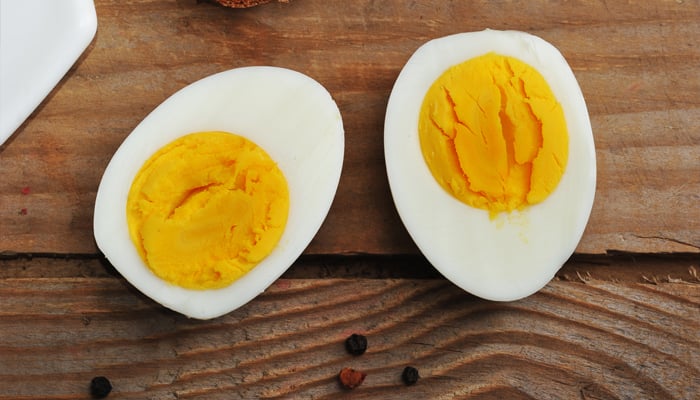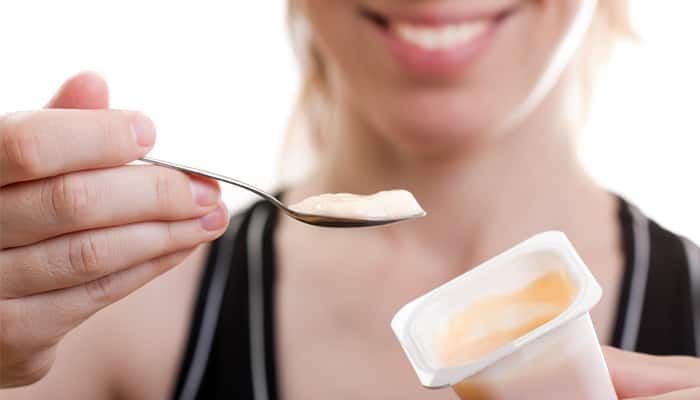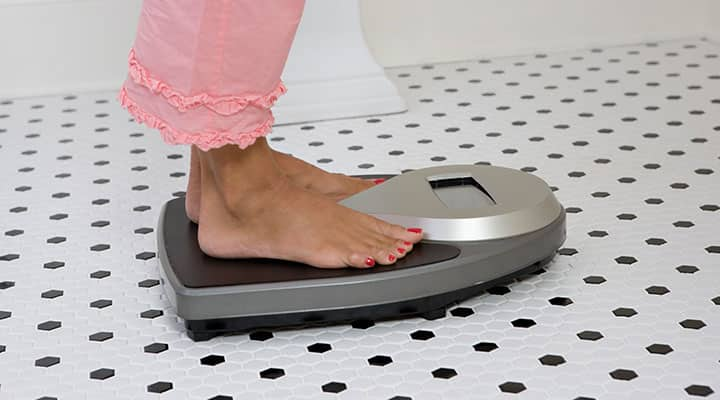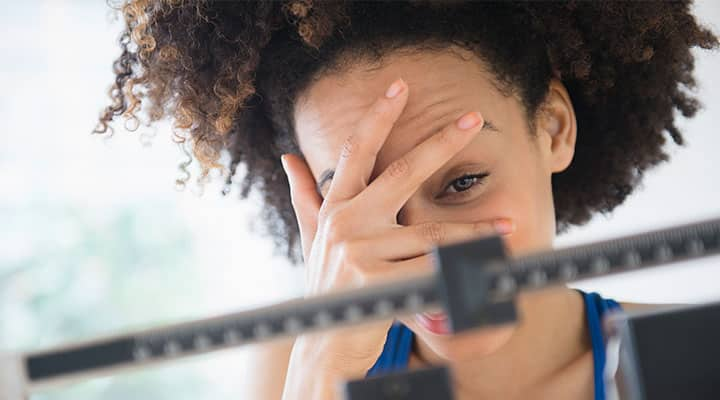
How Often Should You Snack?
Published: September 2021
So, what’s the scoop on snacks? My patients often ask what time they should snack, and what makes a good snack. The specific details may vary depending on dietary needs, but one thing usually holds true: snack when you’re hungry, if a meal is some time away, and choose the healthy foods lacking in your diet.
That being said, I’ve broken down some of my most frequently asked questions about snacking below—including snack timing, what to eat and whether snacking actually is necessary.

Should you snack?
If your calorie needs are high, you’ll probably need to snack at least a couple of times each day to fit in enough food. Otherwise, maybe just once, or perhaps not at all, will be enough for you. You shouldn’t feel obligated to snack, though! Healthy adults rarely need to eat between meals for good health or weight loss, and in fact there may be health benefits to going longer periods between meals.1 But if you want to snack or need it to avoid being famished, as long as you’re not over-doing your calorie intake, there are plenty of healthy ways to snack.
Will snacking help you lose weight?
Many of us have heard that snacking revs your metabolism. There may indeed be some benefits to eating more frequently throughout the day. However, as I’ve noticed from observing my patients, snacking in and of itself does not guarantee weight loss. For example. if those snacks are high in calories, and the other meals you eat throughout the day remain their usual size, you could end up gaining weight rather than losing it. So be mindful of the total number of calories you’ve consumed, not just the frequency with which you’re eating.

Does snacking control your hunger?
Snacking is a popular strategy for managing hunger. One study found that eating less than three times daily is more likely to leave you hungry, so it’s worth grabbing an apple or some nuts in between meals to see if that makes you feel less ravenous at the dinner table.2
I found, though, that there’s not really a one-size-fits-all approach to managing hunger. Your experience is unique, and how hungry you are (and whether you need a snack) probably vary from day to day depending on your activity level, food choices and more.

What kinds of foods are healthy snacks?
Americans’ favorite snacks tend to be chips, chocolate, cheese and cookies, according to a Nielsen report.2 But the Dietary Guidelines for Americans identifies fruits, vegetables and dairy as the most under-consumed food groups, which makes them good candidates for your list.3 Plus, you can never go wrong adding more fruits and vegetables to your diet!
It’s smart to create a list of five to 10 snacks to have on hand, so you’ll be able to choose a healthful option when hunger strikes. Your own ideas are probably better, but here are some to get you started:
- Plain yogurt and fruit
- Peanut butter and apple slices or celery
- Cheese cubes or string cheese
- Low-fat cottage cheese with whole grain crackers
- Raw vegetables dipped in hummus
- Low-sugar oat or nut bars
- Hard-boiled egg and tomato slices (for vitamins C and D)
- Handful of nuts
- Any fresh, frozen or canned fruit without added sugar
- Whole grain toast with mashed avocado and thinly sliced tomatoes and red onion

How many calories should be in a snack?
A snack is not a meal. Unless you’re very active, your snacks should range from about 100 to 250 calories each. Athletes, however, may need to eat much more than this, to compensate for the hundreds of calories they are burning in their training sessions.
Should you snack in the morning?
You’ll benefit from a morning snack if breakfast and lunch are many hours apart. If you find yourself starving just after you ate breakfast, though, revamping your morning meal may be more important than planning a snack.
Instead of racing out the door with nothing more than a banana or a cup of yogurt, eat a balanced breakfast of at least three food groups. Pair the banana and yogurt together and add some walnuts, for example. Or make an egg sandwich with tomato and avocado on whole grain bread.
If you’re the kind who can’t stand much food early in the morning, start the day off with a small snack, such as a piece of fruit, instead of a full meal. Eat your real breakfast later, when your stomach is more eager.

Should you snack before dinner?
I get pretty hungry between my midday lunch and dinner several hours later. So an afternoon snack is more the norm than the exception for me. I prefer to eat when I get hungry, but sometimes that’s not practical. I might eat earlier to prevent that crazy, painful hunger later.
Pulling yourself out of an afternoon slump is not a good reason to snack, though. If you feel a dip in energy and are craving something high in carbohydrates to perk yourself up, it’s not because you’re hungry. Any of these could be the culprit:
- Not enough sleep
- Less caffeine than usual
- Skimpy lunch or poorly balanced lunch
- Boredom
- Inactivity
- Lack of sunlight

What about a bedtime snack?
Most of us won’t need an evening snack unless we eat dinner very early. But do snack to replenish a tough evening workout. Moderate exercisers can probably skip a bedtime nosh, but those who train hard should eat, especially if their calorie needs are high. Make yourself a Greek yogurt and frozen fruit smoothie to get the necessary carbohydrates and protein to repair your muscles.
One caveat about evening snacking: If you experience heartburn or reflux, finish eating at least three hours before going to bed.
Be smart about snacking!
Snacking is a popular pastime. But we shouldn’t eat because we’re bored; instead, stick to snacking as a way to manage hunger and to nourish your body. And remember, the quality of your food and your total calorie intake are more important than the number of times you eat each day.
About the Author: Jill Weisenberger, MS, RDN, CDE, CHWC, FAND is an internationally recognized nutrition and diabetes expert. Through writing, speaking, one-on-one coaching and working with the media, Jill empowers people to grab control of their health. She is the author of the four books including the best-selling Diabetes Weight Loss – Week by Week and the new Prediabetes: A Complete Guide. Jill has a private practice in Newport News, Va., and is a consultant and spokesperson to the food industry, as well as a panelist for the US News & World Report Best Diet Rankings. She is contributing editor to Diabetic Living magazine and a contributor to a variety of magazines and websites, including Kids Eat Right, Environmental Nutrition and Food & Nutrition magazine. Find out more at jillweisenberger.com and follow her @nutritionjill on Facebook and Twitter.
References:
- Paoli A, Tinsley G, Bioanco A, Moro T. The Influence of Meal Frequency and Timing on Health in Humans: The Role of Fasting. Nutrients. 2019 Mar 28;11(4):719.
- Leidy HJ, Campbell WW. The effect of eating frequency on appetite control and food intake: brief synopsis of controlled feeding studies. J Nutr. 2011; 141(1):154-7. doi: 10.3945/jn.109.114389.
- The Nielsen Company. Global consumers nibble, nosh and snack their way to big sales. Nielsen website. https://www.nielsen.com/us/en/insights/article/2014/global-consumers-nibble-nosh-and-snack-their-way-to-big-sales/ Updated September 30, 2014.




